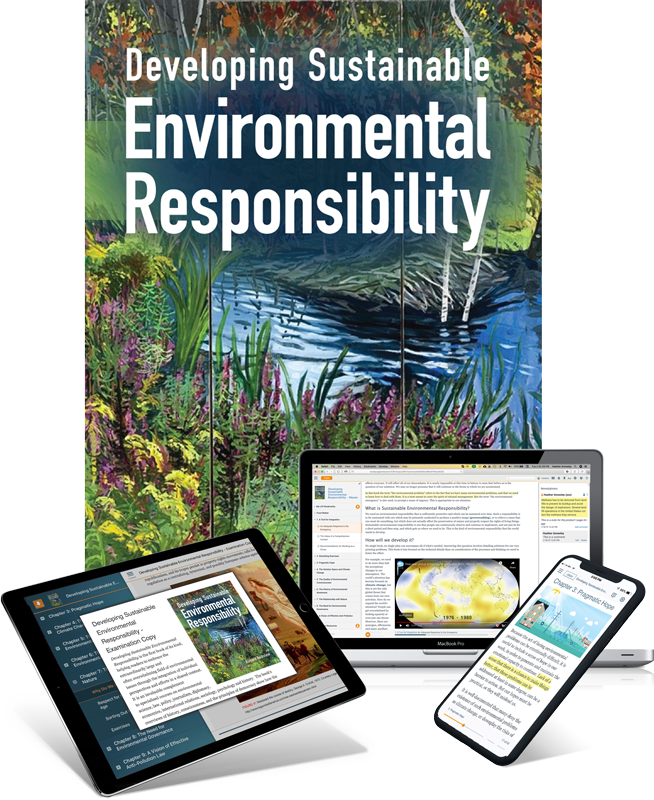the atmosphere and other natural resources are trust resources that the state has a fiduciary obligation to protect.
There are two great questions at stake in this case. One is whether the government has a responsibility to protect that which sustains our life on earth and the other is whether a court must tell the other parts of government to take action. Influencing how this is answered is how we think about freedom.
When we are attacked, we must defend ourselves. We are being attacked by the climate. We started the fight, and it is up to us to end it. When the very air is threatened, we need government to act. We need much more rapid uptake of cleaner practices than we are currently managing and there is resistance to change – some justified, some not – that we need held overcoming.
The public trust doctrine is a legal concept that says the government has a duty to protect public resources. But the state argued in this case that it is merely “a means by which to guide state action” and “does not compel any particular state action...”(p. 596). The court agreed.
Environmental citizens should take note of this way of thinking and work to promote the recognition that we cannot preserve our freedoms – including freedom from being flooded or burned - if government sits on its hands in the face of the building disaster of climate change impacts. The court cites the Geer case, which has to do with game.[2] The words sound like they support the young plaintiffs:[3]
It is, perhaps, accurate to say that the ownership of the sovereign authority is in trust for all the people of the state; and hence, by implication, it is the duty of the legislature to enact such laws as will best preserve the subject of the trust, and secure its beneficial use in the future to the people of the state.
These words are like great Liberty Bells, but the court didn’t hear them ringing. It said it didn’t mean the government has a duty to act to protect those resources (that it is uniquely in a position to protect, as sovereign), it was just clarifying that states have authority “to qualify and restrict the ownership in game killed within its limits”.
Imagine that you are the Orpheus of law, and you can sing about justice in a way that turns people’s hearts, and one of your songs is about how Geer was a holding that there are affirmative duties of the state with respect to game, and to any public trust. Your beloved wife, Eurydice, loves that idea and uses it to litigate on behalf of the children of the world, but then, because the courts are made of stone and remain unmoved, and the indifference of the world tires her, she dies, and now you can’t sing anymore, you can’t advance public interest law. You have no choice but to go down into hell and try to get Eurydice back.
Geer was one hundred years ago. The song of Orpheus today would make clear that the principle applied to game must now be applied to the environment. We owe that to those who will come, if not to ourselves.
Courts are in a tough position. They are not supposed to interfere with the legislature’s role in making laws. But the plaintiffs made it easy in this case. All they asked was for declarations that action needs to be taken. It is not unreasonable to ask the court to give general instructions to protect the people while allowing the other branches of government to retain discretion and flexibility. That’s not usurping the authority of the other branches, that’s the proper check on their failure to act. It is the court’s proper role to ensure the law serves the people.
But it only looked back. It saw that in the past, public trust cases were about the duty to protect “submerged and submersible lands to which Oregon obtained title upon statehood by virtue of its sovereignty”, or game, and even though the legislature could pass laws to protect species from injury or extinction, it had no duty to do so. The court concluded:
We can find no source under the Oregon conception of the public-trust doctrine for imposing fiduciary duties on the state to affirmatively act to protect public-trust resources from the effects of climate change.
In the story of Orpheus and Eurydice, they succeed in convincing the rulers of hell to let Eurydice go back. There’s hope even in seemingly impossible tasks. But Eurydice does not escape from death - Orpheus has been told he may not look at her while she is dead, yet when he emerged, he looked back, and she had not yet come out of the land of death with him, and so she never did. The court made a poetically startling comment:
Plaintiffs assert that the doctrine also encompasses all “essential natural resources,” including, among other things, the waters of the state, fish and wildlife, and the atmosphere. Because we do not reach the merits of that argument as unnecessary to our disposition, we proceed in this opinion to refer to “public-trust resources” in the abstract, without identifying the resources that the term necessarily encompasses.
The method of adjudication may have made this necessary. But climate change cannot be considered abstract: it is horrifyingly concrete. People in Paradise were killed. The people of Kivalina, Alaska, and hundreds of villages like it on the coast, are losing their towns. Vanuatu is losing a nation. Ice sheets are melting. We need courts that will do the work of reaching the merits of the argument, because this is not an abstract idea. Ironically, we can be grateful to the court for articulating the plaintiff’s case succinctly and powerfully:
Essentially, plaintiffs argue that inherent in the public-trust doctrine is a state obligation to protect public-trust resources from substantial impairment— whatever the source of that impairment—and that we should not be constrained from applying the public-trust doctrine in a manner that upholds that principle simply because our prior case law was based on fact patterns that are not readily translatable to the issue now before the court. Plaintiffs assert that adhering to the trial court’s narrow view of the public-trust doctrine renders it meaningless in the face of the existential threats to our state’s resources from climate change.
These points can and must be raised again. They didn’t sway this court, but the argument is sound. Courts are to settle controversies, as this one, between the youth of the world and insufficiently responsible adults, when the legislature and executive do not do so. Oregon has taken action, but is it sufficient in the face of this pressing public need? That should be the question that the court addresses, so that government in a democratic republic will be representative and agent of the people. It is a power of the third branch to make new law when it needs to be made. This is derivative of the common law, the body of custom and understanding that underlies a thousand years of case law, where judges made changes and the law evolved. It is also to be found in the Constitution, where the courts are seen as resolving controversies. Guided by awareness of their place in the system, they are to do what’s necessary.
The idea of responsibility, which is in the precedents cited, needs nurturing. The needs today are of the nature that they cannot be ignored: nature will keep reminding us of them. The simple fact, which the judicial eye should see, is that we can’t sit back and watch the storms build, the forests burn. One can argue that Oregon has taken some action and courts should not interfere. But the court only looked backward, and when you look forward, as young people do, you see an emergency.
More demand for law that works to protect us and the planet will help create the law we need, and in our freedom have the right to create. The right to freedom from planetary damage is universal, so there can be universal demand for it. Courts and legislatures and executives should find ways to recognize this right and make the motors of government move. Citizens should keep asking for this as the act of a free people, seeking freedom from danger and the thralldom of pollution. The court in this case did not take the action needed, but witnesses can apprehend and spread the idea that it should have.
Climate Liability News https://www.climateliabilitynews.org/2019/01/10/oregon-state-youth-climate-juliana/ reported that
Julia Olson, executive director and chief legal counsel for Our Children’s Trust, which supports this and other youth-led climate change suits, said the young plaintiffs plan to appeal. “The court’s decision is a real abdication of the authority and the trustee obligation of the state and it strips citizens of really important rights,” Olson said at a live-streamed press conference.
Olson said she thought the state Supreme Court would be eager to reverse the “misunderstanding of the law” and we can hope those judges will find a way to free the hands of government from the self-binding we have witnessed with such disappointment.
Everyone loved Orpheus. Everyone loved his music. Perhaps the beauty of the song of the idea of the atmospheric public trust and its promise of sense and care will keep it alive. Today, Eurydice is ailing, and if she should die, we should go down into hell to find her and bring her back, because she belongs up here, singing of justice. We will then, I hope, think of a modern Orpheus – Bob Dylan – and how he admonished: Don’t Look Back.
[1] 295 Or App 584.
[2] Geer v. Connecticut, (161 US 519, (1896)).
[3] See them at https://www.ourchildrenstrust.org/oregon/

 RSS Feed
RSS Feed

